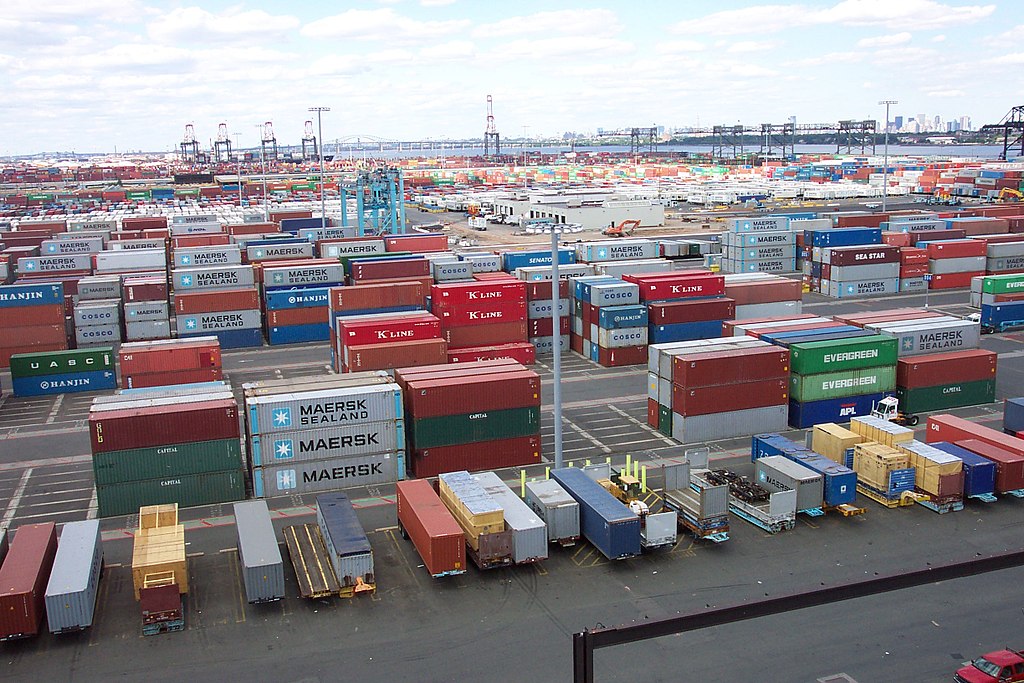China escalated its trade war with the U.S. on Friday by raising tariffs on American imports to 125%, retaliating against President Donald Trump’s move to hike duties on Chinese goods to 145%. This tit-for-tat intensifies global economic tensions, threatening $650 billion in trade and further destabilizing global supply chains.
U.S. markets ended a turbulent week on a high, but the dollar weakened sharply. Gold prices surged to record highs while 10-year Treasury yields saw their steepest weekly gain since 2001, signaling growing investor unease. The bond sell-off has raised borrowing costs and reflected eroding confidence in the U.S. economy.
Trump, aboard Air Force One, dismissed market concerns, predicting a stronger dollar and stable trade deals ahead. He claimed over 75 countries have shown interest in negotiations, including India and Japan. However, analysts warn that continued tariff escalation may make U.S.-China trade virtually impossible.
China’s finance ministry condemned Trump’s actions as “unilateral bullying,” warning the U.S. to cease its “destructive behavior.” While Beijing indicated this round of tariffs may be its last in kind, it hinted at alternative retaliation. The Chinese embassy emphasized that the country “will never bow to maximum pressure.”
Meanwhile, inflation fears are growing. The University of Michigan’s Consumer Sentiment Index dropped to 50.8, with inflation expectations soaring to 6.7%—the highest since 1981. Treasury Secretary Scott Bessent is monitoring the bond market, as industrial metals prices begin to rise due to existing import levies.
Economists warn “tarifflation” may soon drive prices higher, exacerbating recession risks. Trump continues to express optimism about future deals, while Chinese President Xi Jinping urged the EU to unite against “unilateral bullying,” signaling broader geopolitical implications.



 South Korea Assures U.S. on Trade Deal Commitments Amid Tariff Concerns
South Korea Assures U.S. on Trade Deal Commitments Amid Tariff Concerns  Dow Hits 50,000 as U.S. Stocks Stage Strong Rebound Amid AI Volatility
Dow Hits 50,000 as U.S. Stocks Stage Strong Rebound Amid AI Volatility  TrumpRx.gov Highlights GLP-1 Drug Discounts but Offers Limited Savings for Most Americans
TrumpRx.gov Highlights GLP-1 Drug Discounts but Offers Limited Savings for Most Americans  Pentagon Ends Military Education Programs With Harvard University
Pentagon Ends Military Education Programs With Harvard University  TrumpRx Website Launches to Offer Discounted Prescription Drugs for Cash-Paying Americans
TrumpRx Website Launches to Offer Discounted Prescription Drugs for Cash-Paying Americans  Asian Markets Slip as AI Spending Fears Shake Tech, Wall Street Futures Rebound
Asian Markets Slip as AI Spending Fears Shake Tech, Wall Street Futures Rebound  U.S. Sanctions on Russia Could Expand as Ukraine Peace Talks Continue, Says Treasury Secretary Bessent
U.S. Sanctions on Russia Could Expand as Ukraine Peace Talks Continue, Says Treasury Secretary Bessent  Ohio Man Indicted for Alleged Threat Against Vice President JD Vance, Faces Additional Federal Charges
Ohio Man Indicted for Alleged Threat Against Vice President JD Vance, Faces Additional Federal Charges  Bank of Japan Signals Readiness for Near-Term Rate Hike as Inflation Nears Target
Bank of Japan Signals Readiness for Near-Term Rate Hike as Inflation Nears Target  Dollar Near Two-Week High as Stock Rout, AI Concerns and Global Events Drive Market Volatility
Dollar Near Two-Week High as Stock Rout, AI Concerns and Global Events Drive Market Volatility  Trump Allows Commercial Fishing in Protected New England Waters
Trump Allows Commercial Fishing in Protected New England Waters  UAE Plans Temporary Housing Complex for Displaced Palestinians in Southern Gaza
UAE Plans Temporary Housing Complex for Displaced Palestinians in Southern Gaza  Oil Prices Slip as U.S.–Iran Talks Ease Supply Disruption Fears
Oil Prices Slip as U.S.–Iran Talks Ease Supply Disruption Fears  Norway Opens Corruption Probe Into Former PM and Nobel Committee Chair Thorbjoern Jagland Over Epstein Links
Norway Opens Corruption Probe Into Former PM and Nobel Committee Chair Thorbjoern Jagland Over Epstein Links  Federal Judge Restores Funding for Gateway Rail Tunnel Project
Federal Judge Restores Funding for Gateway Rail Tunnel Project  Trump Rejects Putin’s New START Extension Offer, Raising Fears of a New Nuclear Arms Race
Trump Rejects Putin’s New START Extension Offer, Raising Fears of a New Nuclear Arms Race  Vietnam’s Trade Surplus With US Jumps as Exports Surge and China Imports Hit Record
Vietnam’s Trade Surplus With US Jumps as Exports Surge and China Imports Hit Record 





























